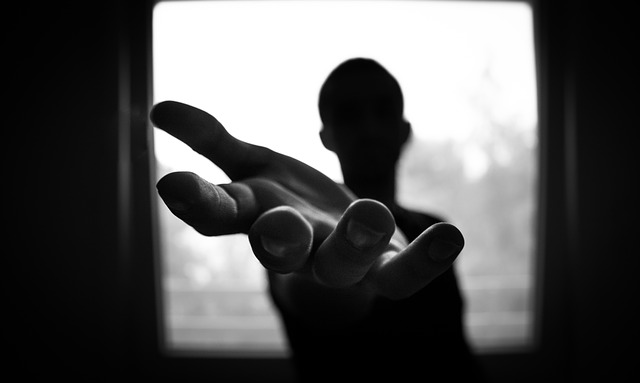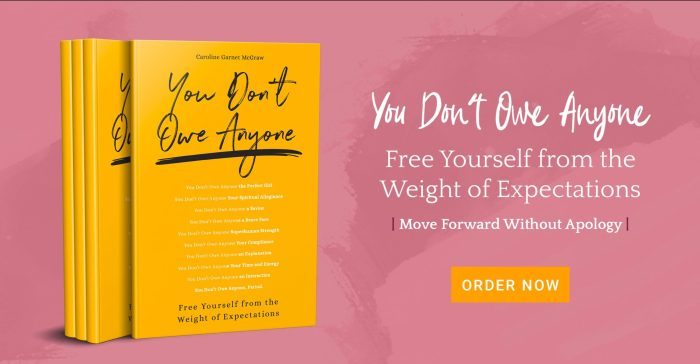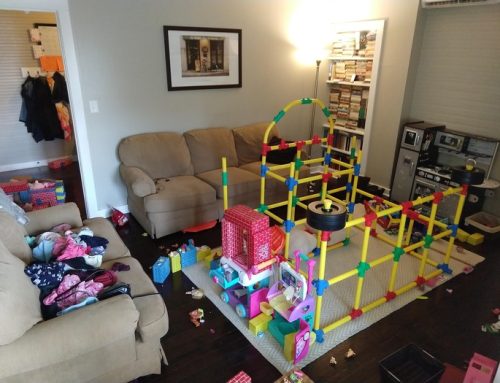After years of verbal and emotional abuse – after years of constant criticism and control – this was her secret truth: “I’m waiting for my husband to die so I can begin to live.”
That’s what a reader wrote to me years ago. It was a difficult truth, and it was brave of her to tell it. With her permission, I’m quoting it here as an excellent one-sentence emotional abuse test.
Have you secretly wished that someone who was hurting you would die, so you could be free? If so, you’ve probably experienced emotional abuse, and perhaps physical abuse as well.
That brings us to an important safety note: If you have reason to believe that leaving, breaking up, or otherwise creating space between yourself and the person who is hurting you could result in additional harm and/or violence, please consult a professional to help.
If you need immediate support, get help with The National Domestic Violence Hotline via call, chat, or text. Remember, the most dangerous time in an abusive relationship is when you exit. With that in mind, make a plan for safety.
I’m writing the rest of this post assuming you’re physically safe and no one is going to hurt you for taking space, or for leaving. If that’s the case, read on.
What is emotional abuse?
Emotional abuse (or psychological abuse) is defined as harmful behavior that includes, but isn’t limited to: verbal abuse (such as name calling), gaslighting, coercive control, and constant criticism.
It can also include intimidating you and purposefully isolating you, or engaging in emotional neglect. There are subcategories of emotional abuse, such as spiritual abuse.
Consistent, ongoing emotional abuse does a real number on you. It damages your sense of trust, and often contributes to trauma. To quote therapist Pete Walker on Complex Post-Traumatic Stress Disorder (CPTSD):
“…ongoing extremes of verbal and/or emotional abuse also cause [CPTSD] …. Contempt can sometimes be more traumatizing than physical abuse. It is a toxic cocktail of verbal and emotional abuse, a deadly amalgam of rage and disgust.”
With all of this in mind, I spoke with the reader who shared her confession. She was still in the terrible relationship, though she did have the means to leave. She had a vision of a simple, peaceful life in a small apartment, and she had the means to make that vision a reality.
The trouble was, she’d learned helplessness over the years of abuse. By the time we talked, she’d been in self-denial for decades. Though intellectually she understood that she had a practical way out, that possibility didn’t register emotionally. She didn’t feel that she could leave.
Sadly, this is common; it takes an average of seven attempts to leave an abusive relationship.
What are the 7 signs of emotional abuse in adults?
Here are 7 signs that someone’s enduring emotional abuse as an adult:
- Low self-esteem, feeling incapable (though they may be highly capable in many areas)
- Increasing isolation; separation from friends, family, or other support networks
- Health challenges, including but not limited to: significant weight loss or weight gain, autoimmune or autoinflammatory conditions
- Lack of sleep, insomnia
- Sudden shifts in mood or personality; for example, a typically cooperative person suddenly starts yelling
- Discernible tension when the abusive partner/friend/relative appears; the abused person shutting down
- Significant increase in mental health struggles; for example, an increase in anxiety leading to panic attacks, or worsening depression, or self-harming behaviors
Again, if you or someone you know is experiencing this, don’t go through it alone. Please reach out to a qualified professional to help.
I said the same to the reader who wrote to me saying that she was waiting for her husband to die so that she could begin to live. I could see her struggling with the idea of getting help for herself, so I took a chance on radical candor.
I said, “If you’re waiting for him to die so you can live, then you have no power. You’ve given it all away. So, what if you turned it around? What if you took him out of the equation entirely? Then the sentence reads, “I’m waiting for ME to die so I can begin to live.”
What if you’re waiting for the death of the version of you that is a victim of circumstance? What if the person you’re waiting for is the one who will rise up and say …
“I am not living this way anymore. I am going to find a way to feel like I’m actually alive. And it starts with finding a way to get support, to make changes in my life. Not because anyone else wants me to, but because it’s important for me.”
If you can relate to this – if you are secretly waiting for anyone else to die so that you can begin to live – then I’m so sorry that you’ve been through so much. And, if you have survived this much, this long, then you are more powerful than you think you are.
It’s time to reconnect with the part of you that knows your own strength. It’s time to do the work of setting yourself free. Let this be the time you’ll remember years from now, looking back and saying, “That was it, that was when I stopped settling and decided to save my own life.”

What are 10 indicators of emotional abuse?
For those of you who have nagging doubts that what you’re experiencing qualifies as abuse, let’s take a look at how to recognize emotional abuse.
Before we begin: Please, do not judge yourself for not recognizing these signs earlier. Often emotional abuse is also covert abuse; that is, a confusing blend of psychological abuse, manipulation, gaslighting, and intimidation tactics. In other words, it’s hard to pinpoint!
Plus, most of us never learned anything about how to deal with unhealthy personalities! Here’s what I’ve learned through the school of hard knocks, plus a ton of my own research: There are two sets of rules for living, depending on which type of person you encounter.
If you’re dealing with someone who has a healthy personality style – which we’ll loosely define as someone who is honest, straightforward, empathetic, and capable of feeling and regulating their own emotions — then you can use regular communication strategies and you’ll be fine.
Everyone makes mistakes, of course, but if the person you’re dealing with regularly demonstrates these traits, that’s a green light to go ahead and enjoy each other’s company.
On the other hand, if there’s someone in your life who regularly lies, lacks empathy, and causes harm to others (while actively soliciting pity for themselves) – then you’re dealing with an unhealthy personality.
And what you must know is that many relationship techniques that work well with healthy personalities will actually get you into trouble with unhealthy personalities.
I learned this through the work of Dr. Martha Beck, Dr. Ramani Durvasula, and Dr. Martha Stout; please, go read their work as well!
That brings us to my list of 10 indicators of emotional abuse in your relationship. Consider this your test; the more of these that resonate with you, the more likely it is that you’re in an emotionally abusive relationship.
1. You try as hard as you can to have a good relationship with someone, yet your good-faith gestures only seem to make things worse.
Pay particular attention here if you are an agreeable, conscientious person who cares deeply about other people. Chances are, your empathy is what’s tripping you up. Which brings us to number 2 …
2. You tend to take on too much responsibility in your relationship.
You do too much emotional labor, trying to make the dynamic work. This feels normal to you, because you learned to do it early in life. Which brings us to number 3 …
3. You endured emotional abuse early on.
In the words of therapist and survivor Patrick Teahan:
“I find the most definitive symptom of childhood trauma is our attempt to get emotionally dysfunctional people to be good to us.”
If you notice that you are overworking in relationships, trying to get unwell people to be good to you, go easy on yourself. You’re not doing this because you’re dumb or masochistic; you’re doing this because you’ve been through trauma.
4. When presented with the idea that the other person isn’t well, you start questioning whether *you* are the unhealthy personality.
This comes up a lot for my coaching clients; whenever we start talking about people with unhealthy personality styles, they immediately ask, “But what if that’s me? There was that time I yelled at my kids / lied to get out of a really bad situation / forgot to feed my cat.”
Most of the time, they’re blowing their mistakes way out of proportion. They think “that time I lost my temper” puts them on par with people who engage in constant verbal and emotional abuse. Not so!
In most cases, they’ve been trained to think that way. They’ve been taught to be very hard on themselves, and turn a blind eye to blatant misdeeds in others.
5. The person you’re with demands control over your choices.
Control is a big red flag for abusive relationships, and there are infinite possible ways it can show up. Pay particular attention to control disguised as virtue, for example: “I know what’s best for you,” or, “I’m only trying to help,” when you’ve already said that you don’t want help.
The classic religious control move is: “Believe in my version of God, join my specific church, or you’ll burn in hell.”
6. The person you’re with gives pseudo-apologies.
For example: “I’m sorry you feel that way,” “I’m sorry you took my comment the wrong way, I only meant well,” etc. A true apology is one in which the person is straightforward, takes full ownership of their wrongdoing, and makes real efforts to repair.
7. When faced with evidence of their own wrongdoing, the person you’re with denies it, attacks you for bringing it up, and then tries to cast themselves as the victim of your “attack.”
This phenomenon is called DARVO – Deny, Attack, Reverse Victim and Offender. It was created by Dr. Jennifer Fryed to describe how many perpetrators act when they’re called out for their crimes.
8. The person you’re with demonstrates variable empathy.
This is tricky, because often this person does have some ability to empathize, but it’s not consistent. You catch glimmers of empathy and it gives you hope, but then those glimmers invariably flicker out. And when the empathy switch is “off,” they cause collateral damage without a care.
9. Increasingly, you feel you need to be careful what you do and say when you’re with this person. (Then you feel exhausted from being careful all the time.)
Regularly feeling a need to tiptoe around, edit, or conceal your true self around one specific person – and not everyone else – often means that you’re dealing with someone who is psychologically fragile. You will probably feel drained and exhausted after spending time with them.
10. You feel sorry for this person, even as they cause pain and distress to you and to others.
Pity is one of the biggest red flags of all; avoid anyone who solicits your pity. This last point is so crucial I’ll quote Dr. Martha Stout of Harvard from her book, The Sociopath Next Door:
“… the best clue [of sociopathy] is, of all things, the pity play. The most reliable sign, the most universal behavior of unscrupulous people is not directed, as one might imagine, at our fearfulness. It is, perversely, an appeal to our sympathy….if…you find yourself often pitying someone who consistently hurts you or other people, and who actively campaigns for your sympathy, the chances are close to 100 percent that you are dealing with a sociopath.”
Sociopaths are different from psychopaths, who are different from narcissists, and so on and so forth. If you want to go into an in-depth study, feel free – but you don’t need to know the exact type of unhealthy personality in order to stay safe. You just need to trust your instincts.
When you sense that something is not right, listen to that feeling! And for those of you who struggle with that, here’s a practical warning sign: Someone driving erratically and/or aggressively. Such driving means there’s a higher probability that you’re dealing with a disordered personality.
It’s not a foolproof test, of course – there are other reasons why a person might drive in these ways – but it’s important to pay attention if this is happening. Check out this video from Dr. Ramani Durvasula, Narcissists and crazy driving, if this feels familiar to you.
Worried that you’re judging too harshly?
If you’re concerned that you’re judging someone in your life too harshly, rest assured, you’re not alone. Most of the people I’ve worked with in coaching are afraid of doing this. They’re kindhearted, and they tend to give people the benefit of the doubt.
If that sounds like you, take a look back over your own life and ask: Does my tendency to give second (and third, and fourth) chances get me into trouble?
If so, remember: it’s not judgmental to look at the facts. It’s not judgmental to notice an unhealthy or abusive pattern, and decide to move away from that. That’s not being judgmental, that’s being wise!
I’m planning another post on practical tips for how to navigate interactions with people who aren’t well, but in the meantime, let me reiterate the simplest one: put as much space as you can between you and the person who is abusive. As long as you can distance safely, it’s the wisest move.
And yes, this will probably feel like a big stretch.
Like the reader who wrote to me, the thought of separating from the abusive person may feel overwhelming to you. If so, consider whether you might be having an emotional flashback to a time when you really were powerless to leave a bad situation.
As an adult, you have agency and options that you didn’t have as a vulnerable child! This is your life. Are you really going to let this psychologically unwell person dictate what you do during your precious time here on earth? We only get about 4000 weeks to live, if we’re lucky.
Reach for Recovery
I’m reminded of another woman I spoke with once, who began our conversation by saying, “I don’t feel adequate enough to talk to you.”
This woman had reasons to feel less-than, stuck, and scared. To protect her privacy, I won’t share those reasons here. It suffices to say that she had a tough history, full of abuse and trauma. She dreamed of helping other people, but struggled to help herself.
When I encouraged her to get support for her journey, she made an effort and asked for help once, from her church. But when she didn’t hear back, it felt like a defeat. I challenged her to follow up, knowing that it would be difficult.
She said, “No. I can’t … It’s too painful.” She said that God would have to step in, because she wasn’t willing to do any more for herself.
I wrote back: “Given your history, it makes sense that you’d struggle to reach out for help and support. But here’s what I’ll say: You have to rest and take care of yourself, yes, but you have also got to reach.
In this case, that means following up on the request that you made. You’re scared that [they] won’t support you, but the bigger question is: Will *you* support you? Will you ask even if you feel uncomfortable, even if you’re scared to hear no?
In one sense, of course, it matters what they say about your request. It matters whether they extend help. But in another sense, it doesn’t matter, because what matters more is whether or not *you* reach.
In the New Testament accounts, Jesus is always responding to people who reach: The woman who touched his cloak who had been bleeding for years, the people who lowered their paralyzed friend through the roof. God does help us in miraculous ways, and we also have to reach.
[Author’s note: Since the woman writing to me was religious, I used a biblical example in hopes of connecting with her. Though I’m not religious now, I was raised attending the WCG, a strict doomsday cult, so biblical examples come easily.]
I’ll quote Cheryl Strayed – a woman who has been through a great deal of abuse and trauma. This is Cheryl writing about a young girl who had endured horrific abuse, sharing what it takes to heal:
“She had to do more than hold on. She had to reach. She had to want it more than she’d ever wanted anything. She had to grab like a drowning girl for every good thing that came her way and she had to swim … away from every bad thing. She had to … run as far as she could in the direction of her best and happiest dreams across the bridge that was built by her own desire to heal.”
I hope that’s helpful; know that it is said with love and gentleness and a desire for you to rise. I want that for you. Will you want it for yourself?”
That’s my question for you today, dear reader: Do you want your recovery enough to reach, to take action on your own behalf?
If so, get a copy of my book, You Don’t Owe Anyone.
In it, I share personal stories of how I came through emotional abuse, and the exact exercises I used to help me heal.
When you share proof of purchase on this page, you’ll also receive valuable bonus gifts.
Share This:
Comments
Related Posts




